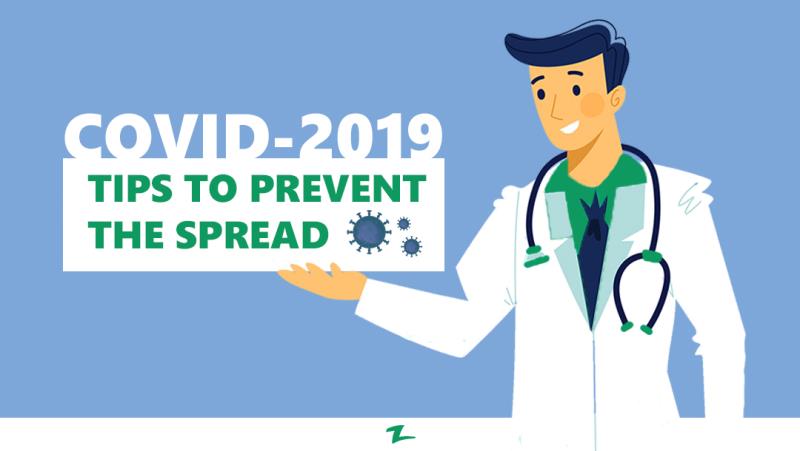On March 11th, the World Health Organization (WHO) declared the COVID-19 a pandemic. Even though the word pandemic sparks fear, please understand that it just means a new disease is spreading worldwide. Scientists are confident that the disease can be suppressed and controlled as long as countries and individuals take preventative measures.
Right now is not the time to panic. The vast majority of those infected with COVID-19 recover and only those who are over the age of 50 or have a precondition such as diabetes, lung disease, heart disease, and cancer are at risk of getting severely ill from the disease. We need to work together as a global community to reduce the spread as much as possible to keep our elders and those with a precondition safe.
Preventative Measures
Wash Your Hands: One of the most important ways we can avoid getting sick and getting others sick is keeping our hands clean. Washing your hands regularly with soap and water for at least 20 seconds kills any viruses that may be on your hands. If soap and water are not available, use a hand sanitizer/ hand rub that contains at least 60% alcohol to avoid getting sick and spreading germs to others. In the words of acclaimed singer, songwriter and actress Gloria Gaynor, “It only takes 20 seconds to “Survive!”
Social Distancing: Awhile you are out in public, try to avoid touching other people and keep an appropriate distance from others. One of the main ways you can practice social distancing is avoiding crowds. Symptoms of the disease may not present for one to two weeks after the person has become infected so there are no clear signs to look for to identify a possible carrier when you are in a public area. WHO advises maintaining a 1-meter/ 3 feet distance between yourself and anyone who is coughing or sneezing.
Staying Home: This is an extension of the concept of social distancing. By staying home, you reduce your chances of catching or spreading COVID-19. You might not know you have COVID-19 for one to two weeks after catching it due to how long the incubation period is. If you feel unwell, call your primary care doctor or your local health authority first to find out what steps you need to take before visiting them in person. Staying home is not a fear reaction, staying home is a preventative action.
Avoid Traveling: At this time, please refrain from all non-essential travel so that you do not put yourself and others at risk. COVID-19 can easily be spread in crowded, closed in settings with limited air circulation such as on a cruise ship, in a train, or on a plane. By limiting travel, we can prevent COVID-19 from spreading to new areas.
Disinfect Surfaces: Make sure to clean surfaces that you and others touch on a daily basis to reduce the risk of someone catching or spreading COVID-19. At the very least, make sure to clean and disinfect your cell phone. We touch our cell phones multiple times a day and set them down on possibly contaminated surfaces without thinking about how any bacteria or virus can transfer on to it. It is possible that COVID-19 can survive on surfaces for days if the surfaces are not properly disinfected.
Until the COVID-19 pandemic is over, the way we go about our daily lives will need to change in order to further prevent the spread of the disease. Our individual actions can make a difference in helping prevent the spread of COVID-19. We are all in this together and together we will survive.
You may also like
-
Download Videos Easily with the New Video Downloader on Zapya Transfer!
-
A Tribute to the Heart of the World: Celebrating Mothers on International Mother’s Day
-
Celebrating International Women’s Day with the Zapya Team
-
Happy New Year 2025!
-
2024 Year in Review: Highlights from Dewmobile Inc.’s Family of Apps

